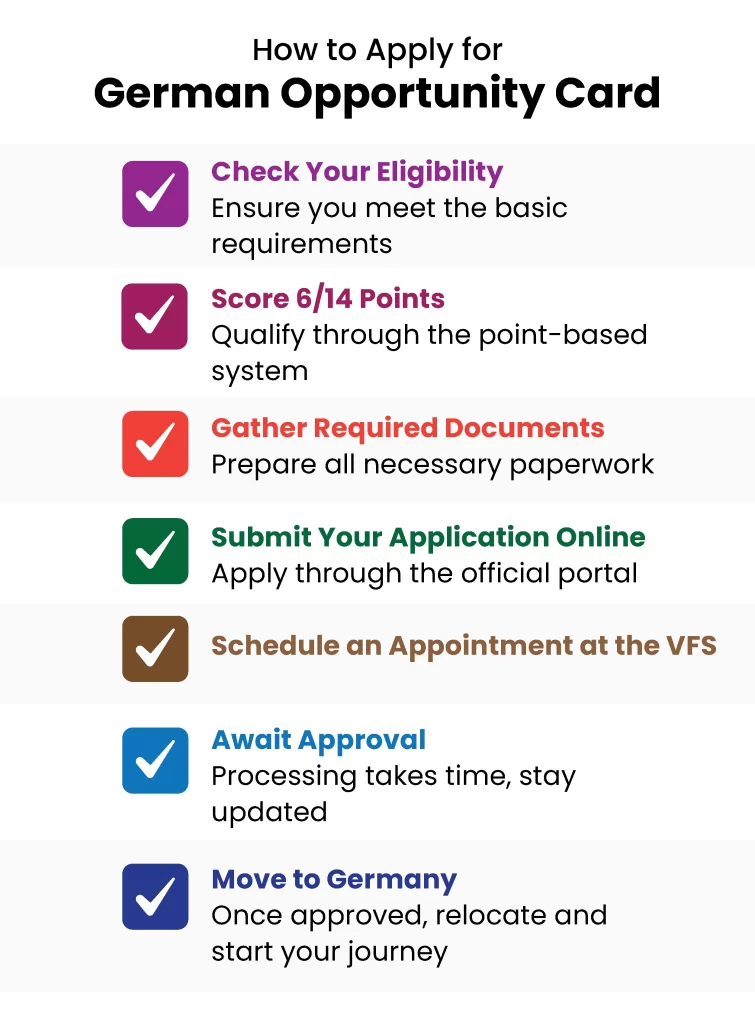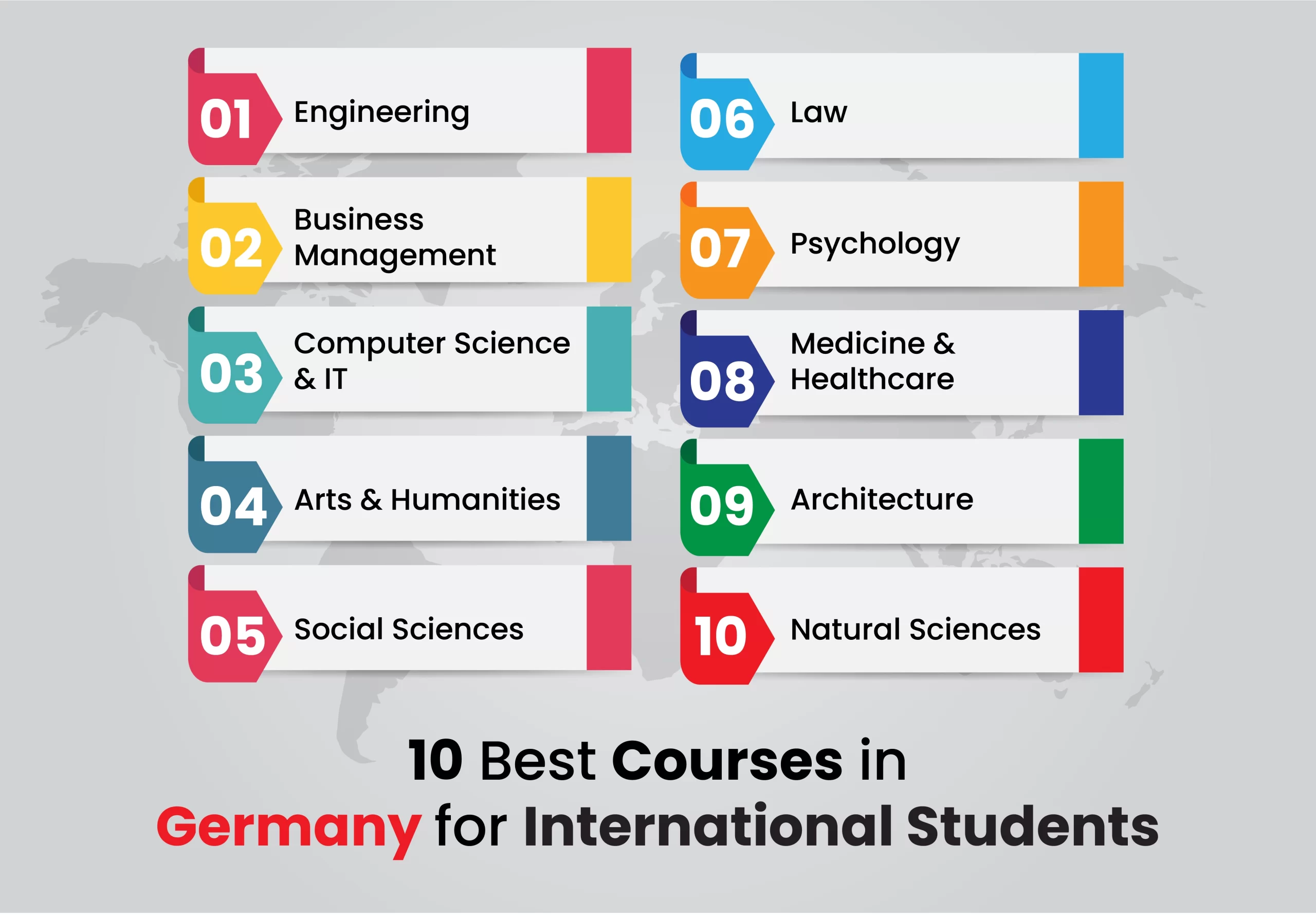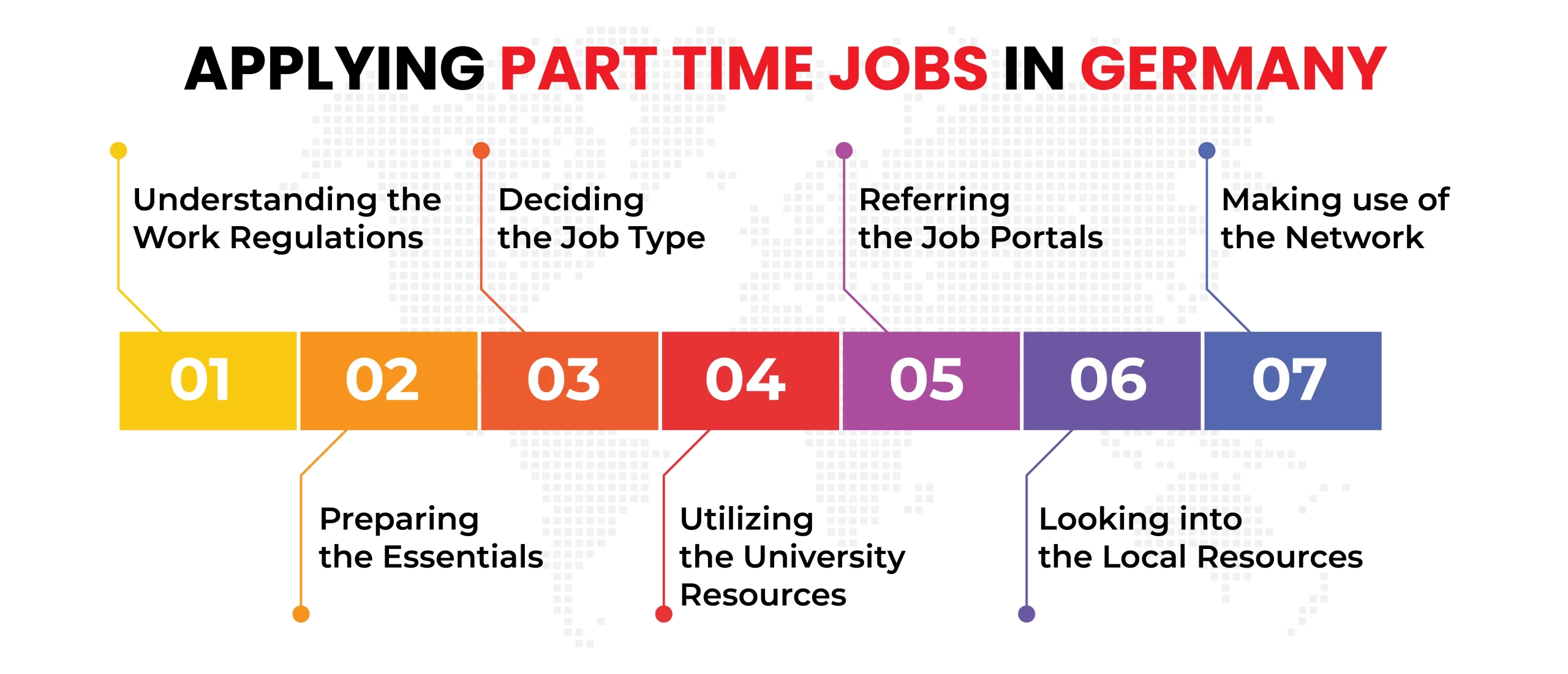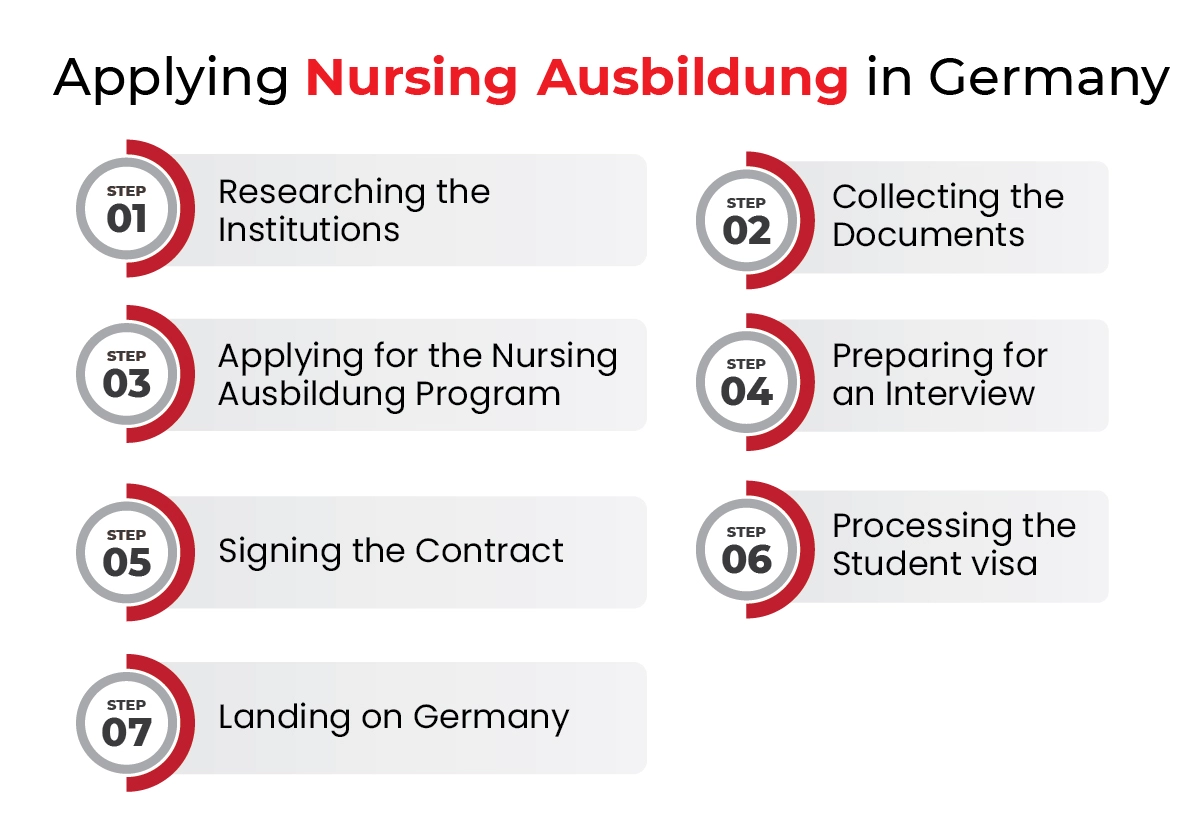Fascinated about what your future could look like in Germany? The picture might be a well-secured job and a happy life there. And it is obvious that a well-secured job comes with a lot of questions. What are the in demand jobs in Germany this year? Are there enough job vacancies? Are you suitable for the job roles? Is it well-paying there?
All your answers are here, in this blog. We can start from the top, listing out the best jobs for you. This 2025 can be a life-changing year for you. So let’s go!
Table of Content
1What are the Most Demanded Jobs in Germany2Top 10 Most In Demand Jobs in Germany3Job Market in Germany for Foreigners4Job Opportunities in Germany5Conclusion6FAQs
What are the Most Demanded Jobs in Germany
Germany offers a wealth of job opportunities driven by its strong economy which is the fifth largest in the world, along with a low unemployment rate and a high demand for skilled professionals. With its dynamic job market and welcoming environment for international talent, it is an ideal destination.
Skill shortage and diverse sectors to explore make Germany’s job market a thriving one. Now we can find out the in demand jobs in Germany
- Healthcare professionals
- IT professionals
- Software developers
- Engineers
- Skilled trades and craft people
- Green jobs
- Education professionals
- Sales and marketing and E-commerce professionals
- Logistics and supply chain specialists
- Construction and architects
- Data scientists and analysts
- Financial analysts and accountants
- Hospitality and tourism professionals
Top 10 Most In Demand Jobs in Germany

1. IT Specialists and Software Developers
Germany leads in technological innovation, creating a high demand for skilled IT professionals Companies seek experts in automation, AI, and cybersecurity to stay ahead globally. Key roles include software developers proficient in Java, Python, and C++, IT security specialists protecting data, and data scientists excelling in analytics and AI.
| Required Qualifications | A Bachelor’s degree or master’s degree in a relevant IT field |
| Eligibility Criteria | Expertise in programming languages |
| Job Roles | Software developers, IT security specialists |
| Top Employers | SAP SE, Siemens AG, BMW Group, Robert Bosch GmbH, Volkswagen Group etc. |
| Job Code | 2512, 2519, 2511, and many other |
| Average Salary Per Year | €55,000 – 88,000 |
2. Healthcare Professionals
Germany’s aging population is driving a rising demand for healthcare workers, leaving hospitals, clinics, and elderly care facilities struggling to fill crucial roles. As a result, healthcare professionals continue to be among the most in demand jobs in Germany in 2025.
| Required Qualifications | Bachelor’s degree or master’s in a related healthcare field |
| Eligibility Criteria | B1 or B2 German language proficiency for nurses Doctors must clear the German medical licensing exam |
| Job Roles | Doctors, Nurses, Physiotherapists, Medical technologists |
| Top Employers | Hospitals, Private Clinics, Pharmacies, Diagnostic Labs |
| Job Code | 2111, 2231, 2264, 2263 |
| Average Salary Per Year | €50,000 – 80,000 |
3. Engineers
Germany faces a growing skills gap in mechanical, electrical, and civil engineering, crucial fields for industries like automotive, manufacturing, and construction. Mechanical engineers focus on machinery and automotive technology, electrical engineers specialise in renewable energy and automation, and civil engineers drive urban development and infrastructure projects.
| Required Qualifications | Bachelor’s degree or master’s in a related engineering field |
| Eligibility Criteria | Qualification must be recognised in Germany |
| Job Roles | Electrical, Mechanical, Civil, Industrial Engineers |
| Top Employers | BMW, Siemens, and many more |
| Job Code | 2141 (Electrical), 2132 (Mechanical), 2131 (Civil), 2143 (Industrial) |
| Average Salary Per Year | €55,000 – 85,000 |
4. Skilled Trades and Craft People
Germany has a big shortage of skilled workers like electricians, plumbers, carpenters, and builders. The education system system includes apprenticeships, but there aren’t enough workers
| Required Qualifications | A recognised qualification equivalent to German standards and relevant work experience |
| Eligibility Criteria | Proficiency in English; German knowledge is an advantage |
| Job Roles | Electricians, Plumbers, Builders |
| Top Employers | Construction Industry |
| Job Code | 1210 (Electrician), 3711 (Plumber), 3811 (Builder) |
| Average Salary Per Year | €35,000 – 55,000 |
5. Education Professionals
Germany has a high demand for educational professionals such as STEM teachers and language instructors, especially for German as a second language, Education administrator. The country values international educators with relevant qualifications and German language skills to support its growing number of international students. And this marks as the 5th in demand jobs in Germany for 2025.
| Required Qualifications | Bachelor’s degree or master’s in a related field |
| Eligibility Criteria | Recognized qualification equivalent to German qualifications. English should be proficient; German knowledge is considered a plus. English teachers with certifications like TEFL. |
| Job Roles | Teachers, Education Administrator |
| Top Employers | Schools, Educational Institutions |
| Job Code | 2330, 1346 |
| Average Salary Per Year | €40,000 – 55,000 |
6. Green Jobs
Germany’s push for renewable energy is creating jobs, especially in the solar, wind, and hydrogen sectors. Professionals in green energy, environmental science, and sustainability consulting are in high demand.
| Required Qualifications | A recognised qualification equivalent to German standards and relevant work experience |
| Eligibility Criteria | Proficiency in English; German knowledge is an advantage |
| Job Roles | Wind Energy Technician, Solar Energy Engineer, Renewable Energy Consultant |
| Top Employers | Green Technology Companies |
| Job Code | 7111, 2144, 2411 |
| Average Salary Per Year | €50,000 – 75,000 |
7. Sales, Marketing and E-commerce Professionals
With businesses expanding online, Germany has a high demand for marketing and sales professionals. Digital marketers, business development managers, and e-commerce specialists are especially needed in several industries.
| Required Qualifications | A recognised qualification equivalent to German standards and relevant work experience |
| Eligibility Criteria | Proficiency in English; German knowledge is an advantage |
| Job Roles | Digital Marketing Specialist, Sales Manager, E-Commerce Manager |
| Top Employers | Top e-commerce companies like Amazon |
| Job Code | 2433, 1321, 1330 |
| Average Salary Per Year | €45,000 – 75,000 |
8. Logistics and Supply Chain Specialists
Germany’s role as a global trade leader creates a strong demand for logistics and supply chain professionals. Logistics managers oversee shipments and warehousing, while supply chain analysts optimize operations for cost efficiency. And this sector comes 8th in the in demand jobs in Germany
| Required Qualifications | A recognised qualification equivalent to German standards and relevant work experience |
| Eligibility Criteria | Proficiency in English; German knowledge is an advantage |
| Job Roles | Supply Chain Manager, Logistics Coordinator, Warehouse Manager |
| Top Employers | Logistics companies like DHL |
| Job Code | 1324, 4321, 1330 |
| Average Salary Per Year | €45,000 – 65,000 |
9. Financial Analysts and Accountants
Germany’s strong economy and global businesses rely on financial experts for investment management, taxation, and compliance. Accountants must understand IFRS, financial analysts assess market trends, and tax consultants specialise in German tax laws.
| Required Qualifications | A recognised qualification equivalent to German standards and relevant work experience |
| Eligibility Criteria | Proficiency in English; German knowledge is an advantage |
| Job Roles | Financial Analyst, Tax Consultant, Accountant |
| Top Employers | Financial firms |
| Job Code | 2411, 2412, 2411 |
| Average Salary Per Year | €50,000 – 70,000 |
10. Travel and Hospitality Professionals
Germany’s post-pandemic tourism boom has boosted demand for skilled workers in hospitality, creating opportunities for hoteliers, restaurateurs, travel consultants, and event planners, especially in major cities and tourist hubs. This makes this sector the 10th on the list of in demand jobs in Germany.
| Required Qualifications | A recognised qualification equivalent to German standards and relevant work experience |
| Eligibility Criteria | Proficiency in English; German knowledge is an advantage |
| Job Roles | Electricians, Plumbers, Builders |
| Top Employers | Construction Industry |
| Job Code | 1210 (Electrician), 3711 (Plumber), 3811 (Builder) |
| Average Salary Per Year | €35,000 – 55,000 |
Job Market in Germany for Foreigners
Germany has long been recognised for welcoming global talent, offering numerous opportunities across various sectors. However, recent economic indicators suggest a shift in the landscape.
- Economic growth: With the high economic growth and GDP growth in Europe it serves as a dreamy place for professionals
- Unemployment rate: The unemployment rate has risen to 6.4% as of January 2025, the highest in nearly a decade, indicating a more competitive job market.
- Skilled worker demand: There’s always been a need for skilled workers the country wants approx. 400,000 skilled migrants arrive each year to fulfill the demand for labor.
In light of these developments, professionals considering a move to Germany should stay informed about the evolving economic conditions that affect in demand jobs in Germany and adjust their career strategies accordingly.
Job Opportunities in Germany
As for Germany job opportunities, it is booming, offering excellent career opportunities for foreign professionals across various industries. As one of Europe’s strongest economies, the country actively seeks skilled workers to fill labor shortages in key sectors. Companies are increasingly open to hiring international talent.
With competitive salaries, strong labor rights, and long-term career growth, Germany remains a top destination for skilled professionals worldwide. The key sectors in demand jobs in Germany are the following:
- Technology & IT
- Engineering & Green Jobs
- Healthcare & Nursing
- Logistics & Transportation
- Hospitality & Tourism
- Finance & business
Conclusion
After looking at all the most in demand jobs in Germany for the year 2025, we can conclude that Germany is the place you looking for your dream career. Your skills need a better place, and you know it. Now, your search is over. This is the best year and CanApprove is here to help you make a change!









